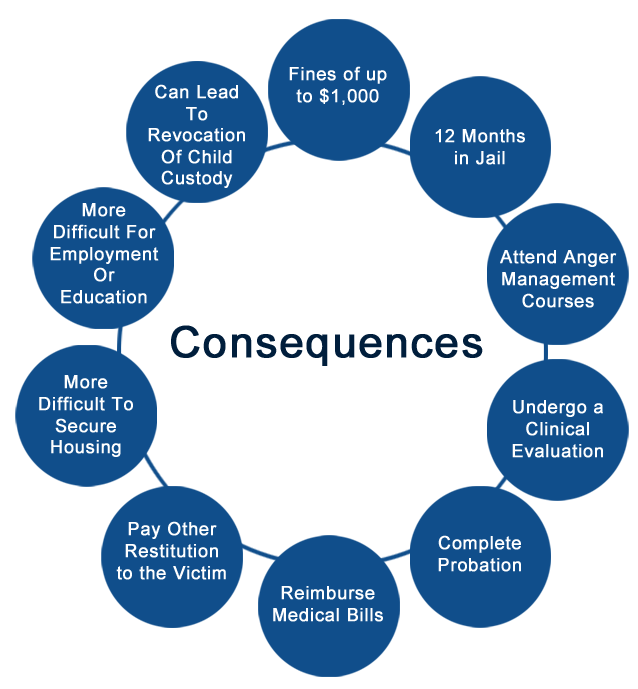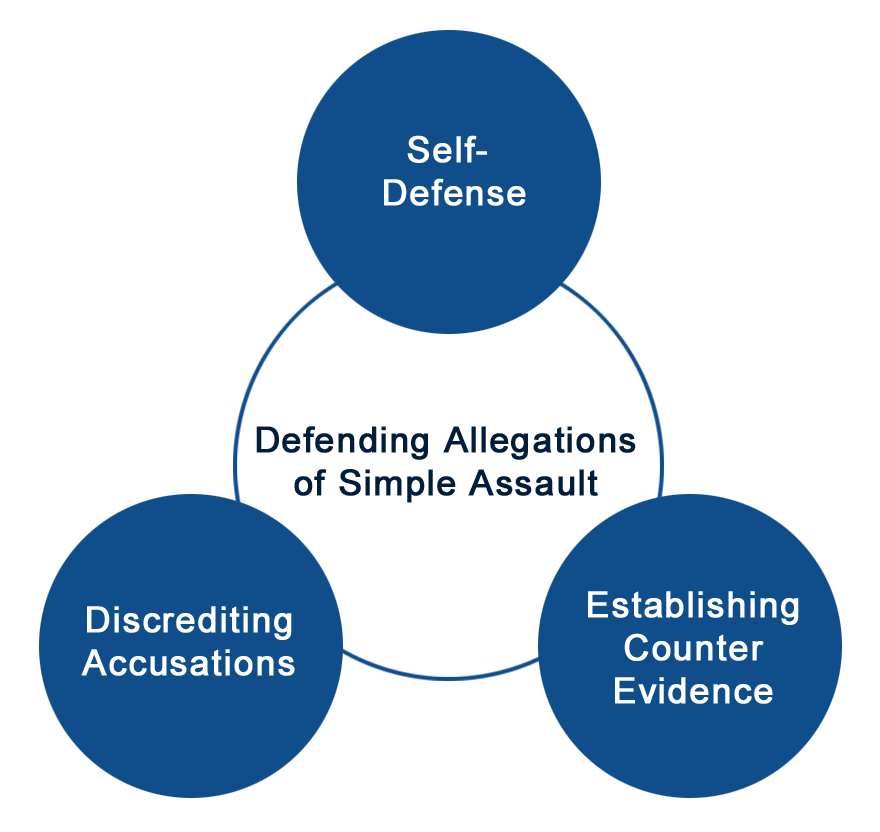
Simple Assault in Georgia
Georgia’s legal code offers several different levels of charges for acts of violence between two people. Maybe you’ve heard of assault and battery, and have wondered what the difference is between the two. You may have even heard of the charge “simple assault” and had questions about what defines simple assault. The following should give you a clear idea of the line between these concepts, and where they are drawn.
In a legal sense, the term assault refers to any act that intentionally places someone else in harm’s way or makes an offensive form of contact with another person. It can even include acts that a reasonable person might think put them in harm’s way.
It’s this second part where we find many of the situations that lead to simple assault charges. If an attempt is made to harm another person — whether that means trying to physically strike them, throwing something at them with an intention to harm or threatening them — that would be an example of simple assault. It does not have to involve actual physical contact, merely the intention to harm or cause fear.

Assault vs. Battery
The dividing factor between assault and battery is physical contact. It is possible to assault someone via a threat – legally speaking, a statement of intent to harm another person – or through any attempt to harm someone that doesn’t actually cause them harm.
But as soon as those actions do cause harm, as soon as there is actual physical contact between the accuser and victim, it is considered battery. Simple battery charges can be filed for any number of reasons, as long as there was physical or visible physical harm done to the injured party. A kick, punch or slap that results in any kind of disfigurement, even temporary would cross this threshold.
While simple assault charges are generally not filed without actual physical harm to the other party, it is still a serious enough offense that it calls for a vigorous defense.

What are the Consequences of a Simple Assault Conviction?
As long as there are no aggravating factors, simple assault is generally prosecuted as a misdemeanor. As such, the baseline sentencing will usually include fines of up to $1,000 and up to 12 months in jail. Beyond that, the nature of the crime may lead to further consequences. Those convicted may be asked to attend anger management courses, undergo a clinical evaluation, complete probation or keep a certain distance from the victim. They may also be asked to reimburse medical bills or pay other restitution to the victim.
Down the road, the simple assault conviction on their permanent record can make it more difficult to secure housing, employment or education, and lead to revocation of child custody, government assistance, a firearms license or a state-issued professional license.

Defending Allegations of Simple Assault
Many times, an accusation of simple assault stems from a misunderstanding or a situation that went too far out of hand. Explaining this to a judge or a jury is an effective way to have charges reduced or dismissed entirely. Some defenses may include:
Self-Defense: Under the law, you have the right to protect yourself from an attack, but you also have the right to protect others or property. Counteracting violence or the threat of violence is legally permissible.
Discrediting Accusations: Any inconsistencies in the accuser’s story, or a lack of evidence to justify claims of simple assault can be enough to render the accusations false. In addition, the accuser may be motivated to lie about an incident, or have a documented history of false accusations.
Establishing Counter Evidence: It’s not uncommon for drugs or alcohol to play a part in any incident that leads to simple assault charges. As a result, the accuser’s story can fall apart fairly easily with the introduction of eyewitness testimony or video surveillance that contradicts their version of events.

How The Claiborne Firm is Different
Time and time again, our experienced attorneys have seen how the right amount of preparation can make all the difference in a simple assault trial. The prosecution and the arresting officer are working hard to see you found guilty, but we simply work harder.
Our independent investigation goes deeper, collecting and preserving evidence and first-hand witness accounts that exonerate clients. This evidence can run the gamut from nearby surveillance cameras to police reports and court documents, and we won’t rest until we’ve found it all.
That gives us a better grasp of the facts, which in turn gives us all the chance we need to have charges reduced or dropped. Fill out the contact form below to schedule a consultation with the Claiborne Firm.
Call (912) 351-8775 or Schedule a Free Case Evaluation Online
